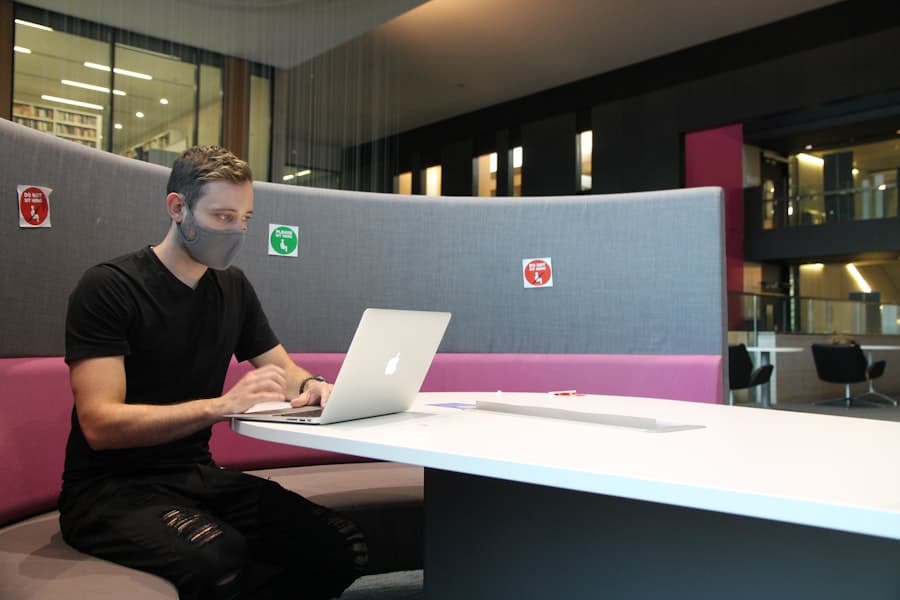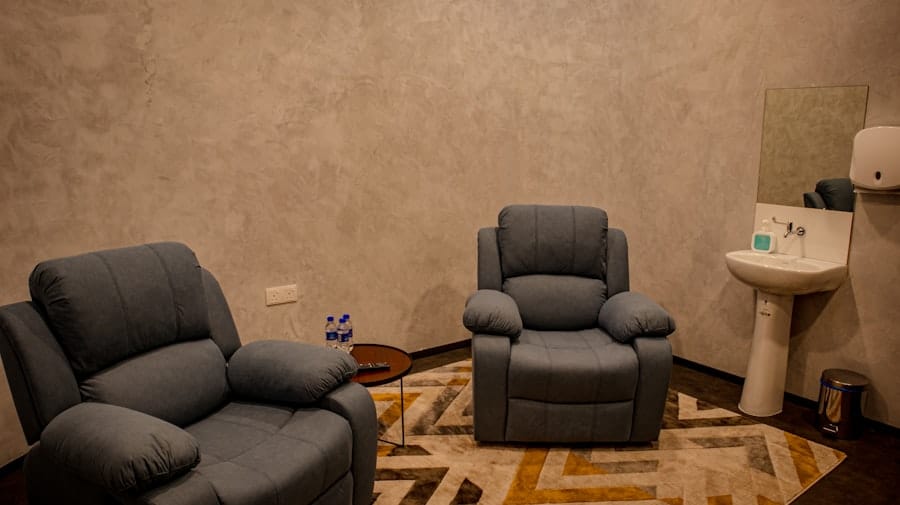In recent years, the landscape of job interviews has undergone a significant transformation, particularly in the technology sector. As companies increasingly seek innovative ways to assess candidates, virtual reality (VR) simulations have emerged as a groundbreaking tool for interview preparation. This technology allows candidates to immerse themselves in realistic scenarios that mimic the challenges they might face in a real job setting.
By leveraging VR, candidates can practice their skills, enhance their problem-solving abilities, and gain confidence before stepping into the actual interview room. The integration of VR into tech interview preparation is not merely a trend; it represents a paradigm shift in how candidates prepare for one of the most critical stages of their career journey. Traditional methods, such as mock interviews or online assessments, often lack the immersive experience that VR provides.
This innovative approach not only prepares candidates for technical questions but also equips them with the soft skills necessary to navigate complex interpersonal interactions.
Key Takeaways
- VR simulations offer a new and immersive way to prepare for tech interviews, allowing candidates to practice in a realistic environment.
- Using VR simulations in tech interview preparation can provide advantages such as increased engagement, better retention of information, and the ability to practice in a safe and controlled environment.
- However, challenges and limitations of VR simulations in tech interview preparation include the cost of implementation, potential technical issues, and the need for access to VR equipment.
- VR simulations can play a crucial role in improving candidate performance by providing a platform for repeated practice, feedback, and the opportunity to experience realistic interview scenarios.
- The future of VR simulations in tech interview preparation looks promising, with potential advancements in technology and the integration of AI to provide more personalized and effective training experiences.
Advantages of Using VR Simulations in Tech Interview Preparation
One of the most significant advantages of using VR simulations in tech interview preparation is the ability to create a safe and controlled environment for practice. Candidates can experiment with different approaches to problem-solving without the fear of real-world consequences. For instance, a software engineer might find themselves in a simulated scenario where they must debug a piece of code under time constraints.
In this environment, they can make mistakes and learn from them, refining their skills in a way that traditional interview preparation methods cannot offer. Moreover, VR simulations provide immediate feedback, which is crucial for effective learning. After completing a simulation, candidates can receive detailed analytics on their performance, highlighting areas where they excelled and aspects that require improvement.
This data-driven approach allows candidates to focus their efforts on specific skills or knowledge gaps, making their preparation more targeted and efficient. For example, if a candidate struggles with communication during a simulated team meeting, they can work on that particular skill before their actual interview, thereby enhancing their overall performance.
Challenges and Limitations of VR Simulations in Tech Interview Preparation

Despite the numerous benefits associated with VR simulations, there are also challenges and limitations that must be acknowledged. One primary concern is the accessibility of VR technology. While prices for VR headsets have decreased over time, not all candidates may have access to the necessary equipment or a suitable environment to engage in VR simulations.
This digital divide could lead to disparities in preparation opportunities among candidates from different backgrounds or regions. Additionally, the effectiveness of VR simulations can vary based on the quality of the content and the realism of the scenarios presented. If the simulations are poorly designed or fail to accurately reflect real-world situations, candidates may not gain the intended benefits from their practice sessions.
For instance, a simulation that oversimplifies complex technical problems may not adequately prepare candidates for the nuanced challenges they will face during actual interviews. Therefore, it is essential for developers and educators to ensure that VR content is both engaging and representative of real-world scenarios.
The Role of VR Simulations in Improving Candidate Performance
VR simulations play a pivotal role in enhancing candidate performance by fostering a deeper understanding of both technical and interpersonal skills.
Through immersive simulations, candidates can practice these soft skills in realistic settings, such as team meetings or project discussions.
For example, a candidate preparing for a product management role might engage in a simulation where they must lead a cross-functional team through a product development cycle. This experience allows them to practice articulating their vision, negotiating with stakeholders, and addressing team dynamics—all critical components of success in a tech environment. By honing these skills in a simulated context, candidates can approach their actual interviews with greater confidence and competence.
Furthermore, VR simulations can help candidates develop resilience and adaptability—qualities that are increasingly valued in today’s fast-paced tech industry. By exposing candidates to unexpected challenges within the simulation, such as sudden changes in project requirements or technical setbacks, they learn to think on their feet and respond effectively under pressure. This experiential learning not only prepares them for interviews but also equips them with valuable skills that will serve them well throughout their careers.
The Future of VR Simulations in Tech Interview Preparation
As technology continues to evolve, the future of VR simulations in tech interview preparation looks promising. Advancements in artificial intelligence (AI) and machine learning could further enhance the capabilities of VR training programs. For instance, AI algorithms could analyze candidate performance data to create personalized training modules tailored to individual strengths and weaknesses.
This level of customization would allow candidates to focus on specific areas for improvement, making their preparation even more effective. Moreover, as remote work becomes increasingly prevalent, VR simulations could bridge the gap between virtual and physical interactions. Candidates could participate in simulated interviews with hiring managers located anywhere in the world, providing them with exposure to diverse interviewing styles and cultural nuances.
This global perspective would not only enrich the candidate’s experience but also prepare them for working in increasingly international teams. Additionally, as organizations recognize the value of immersive training experiences, we may see more companies adopting VR simulations as part of their standard interview processes. This shift could lead to a more equitable hiring landscape where all candidates have access to high-quality preparation tools, regardless of their geographical location or socioeconomic background.
Incorporating VR Simulations into Interview Processes

Integrating VR simulations into interview processes requires careful planning and execution by organizations looking to enhance their hiring practices. Companies must first assess their specific needs and objectives when it comes to candidate evaluation. For instance, if an organization prioritizes collaboration and teamwork skills, they might design simulations that emphasize group dynamics and communication.
Once objectives are established, organizations can partner with VR developers or training providers to create tailored simulations that align with their industry standards and job requirements. These simulations should be rigorously tested to ensure they accurately reflect real-world scenarios and provide meaningful feedback to candidates. Additionally, organizations should consider offering candidates access to these simulations prior to their interviews so they can familiarize themselves with the technology and practice effectively.
Furthermore, companies should provide clear instructions on how to use the VR equipment and navigate the simulations. This support is crucial for ensuring that all candidates feel comfortable with the technology and can focus on demonstrating their skills rather than struggling with unfamiliar tools. By creating an inclusive environment that embraces innovation while prioritizing candidate experience, organizations can significantly enhance their interview processes.
Ethical Considerations in the Use of VR Simulations for Interview Preparation
The implementation of VR simulations in tech interview preparation raises several ethical considerations that organizations must address. One primary concern is data privacy and security. As candidates engage with VR platforms, they may be required to share personal information or performance data.
Organizations must ensure that this data is handled responsibly and transparently, adhering to relevant regulations such as GDPR or CCPA. Moreover, there is a risk that reliance on VR simulations could inadvertently reinforce biases within the hiring process. If simulations are designed without careful consideration of diversity and inclusion principles, they may favor certain demographics over others based on how scenarios are framed or assessed.
To mitigate this risk, organizations should involve diverse stakeholders in the development process and continuously evaluate the impact of their simulations on different candidate groups. Additionally, organizations must be mindful of the potential psychological effects of using immersive technology for interview preparation. While VR can enhance learning experiences, it may also induce anxiety or discomfort for some individuals.
Providing alternative preparation methods alongside VR options ensures that all candidates have access to resources that suit their preferences and comfort levels.
The Potential Impact of VR Simulations on the Future of Tech Interview Preparation
The integration of VR simulations into tech interview preparation holds immense potential for transforming how candidates prepare for one of life’s most daunting challenges—the job interview. By offering immersive experiences that replicate real-world scenarios, these simulations equip candidates with essential skills while fostering confidence and resilience. As technology continues to advance and organizations embrace innovative hiring practices, we can expect VR simulations to play an increasingly prominent role in shaping the future of talent acquisition.
As companies strive for more equitable hiring processes and seek ways to enhance candidate experiences, VR simulations offer a unique solution that addresses many traditional challenges associated with interview preparation. By prioritizing accessibility, ethical considerations, and continuous improvement in simulation design, organizations can harness the power of this technology to create a more inclusive and effective hiring landscape for all candidates entering the tech industry.
If you are interested in the latest tech trends, you may also want to check out How Smartwatches Are Revolutionizing the Workplace. This article explores the impact of smartwatches on productivity and efficiency in various industries, shedding light on the ways in which wearable technology is changing the way we work.
FAQs
What is VR simulation in tech interview preparation?
VR simulation in tech interview preparation refers to the use of virtual reality technology to create realistic and immersive simulations of technical interview scenarios. This allows candidates to practice and improve their technical skills in a virtual environment.
How does VR simulation benefit tech interview preparation?
VR simulation offers a more immersive and interactive experience compared to traditional interview preparation methods. It allows candidates to practice in a realistic environment, receive immediate feedback, and improve their technical skills in a more engaging way.
What are the potential applications of VR simulations in tech interview preparation?
VR simulations can be used to simulate coding challenges, system design exercises, and other technical interview scenarios. They can also be used to create realistic mock interviews with virtual interviewers, helping candidates improve their communication and problem-solving skills.
What are the challenges of implementing VR simulations in tech interview preparation?
Challenges of implementing VR simulations in tech interview preparation include the cost of VR hardware and software, the need for technical expertise to develop and maintain VR simulations, and the potential limitations of VR technology in accurately simulating real-world technical challenges.
What is the future outlook for VR simulations in tech interview preparation?
The future of VR simulations in tech interview preparation looks promising, as advancements in VR technology continue to improve the realism and effectiveness of virtual simulations. As VR technology becomes more accessible and affordable, it is likely to become a more common tool for tech interview preparation.

